Church, Faith and Culture in the Medieval West
Series Editors: Brenda Bolton
Anne J. Duggan and Michael E. Goodich
About the series
The series Church, Faith and Culture in the Medieval West reflects the central concerns necessary for any in-depth study of the medieval Church greater cultural awareness and interdisciplinarity. Including both monographs and edited collections, this new series draws on the most innovative work from established and younger scholars alike, offering a balance of interests, vertically though the period from c.400 to c.1500 or horizontally across Latin Christendom. Topics covered range from cultural history, the monastic life, relations between Church and State to law and ritual, palaeography and textual transmission. All authors, from a wide range of disciplinary backgrounds, share a commitment to innovation, analysis and historical accuracy.
About the volume
Since its earliest days, the Christian Church sought to draw up rules by which its members could live together in religious communities. Whilst those of Augustine (c.400 AD) and Benedict (c.530 AD) provided detailed guidance for monastic life, it took another two centuries for equivalent rules for secular clergy to become accepted on a wide scale. The earliest surviving set of comprehensive rules for canons are those written in the mid-eighth century by St Chrodegang (c.712766), Bishop of Metz.
Providing the Latin texts and English translations of the three surviving versions of Chrodegangs Rule, (Regula Originalis Chrodegangi, Institutio Canonicorum, Regula Longior Canonicorum) this volume offers an invaluable resource to scholars of mediaeval Christian communities. Substantial introductions to each text provide historical context and bibliographic details, allowing them to be understood in a much fuller way than has hitherto been possible.
Writing initially for secular clergy at Metz Cathedral, this work shows how Chrodegangs rule borrowed much from the Benedictine tradition, dealing with many of the same concerns such as the housing, feeding and disciplining of members of the community and the daily routine of the divine offices. At a time when there was no consensus on how clergy should live whether they should marry or were eligible to own property Chrodegangs rule provided clear guidance on such issues, and inspired reformers across Europe to consider how clergy lived and interacted with wider society. Although his work was superseded within a generation by the Rule of Aachen, Chrodegang succeeded in setting the agenda for subsequent rules for canons and as such his Rule deserves to be given more weight by Church historians than has often been the case.
Church, Faith and Culture in the Medieval West
Series Editors: Brenda Bolton
Anne J. Duggan and Michael E. Goodich
Other titles in the series:
Michelle Still
The Abbot and the Rule
Religious Life at St Albans, 12901349
Gillian R. Knight
The Correspondence between Peter the Venerable and Bernard of Clairvaux
A Semantic and Structural Analysis
Richard Kay
The Council of Bourges, 1225
A Documentary History
Edited by Brenda Bolton and Anne J. Duggan
Adrian IV The English Pope (11541159)
Studies and Texts
Edited by Kathleen G. Cushing and Richard F. Gyug
Ritual, Text and Law
Studies in Medieval Canon Law and Liturgy Presented to Roger E. Reynolds
Damian J. Smith
Innocent III and the Crown of Aragon
The Limits of Papal Authority
Sylvia Schein
Gateway to the Heavenly City
Crusader Jerusalem and the Catholic West (10991187)
Anke Holdenried
The Sibyl and Her Scribes
Manuscripts and Interpretation of the Latin Sibylla Tiburtina c. 10501500
Edited by Anne J. Duggan, Joan Greatrex and Brenda Bolton Omnia disce Medieval Studies in Memory of Leonard Boyle, O.P.
First published 2005 by Ashgate Publishing
Published 2017 by Routledge
2 Park Square, Milton Park, Abingdon, Oxon 0X14 4RN
711 Third Avenue, New York, NY 10017, USA
Routledge is an imprint of the Taylor & Francis Group, an informa business
Copyright Jerome Bertram 2005
The author has asserted his moral right under the Copyright, Designs and Patents Act, 1988, to be identified as the author of this work.
All rights reserved. No part of this book may be reprinted or reproduced or utilised in any form or by any electronic, mechanical, or other means, now known or hereafter invented, including photocopying and recording, or in any information storage or retrieval system, without permission in writing from the publishers.
Notice:
Product or corporate names may be trademarks or registered trademarks, and are used only for identification and explanation without intent to infringe.
British Library Cataloguing in Publication Data
Bertram, Jerome
The Chrodegang rules : the rules for the common life of the secular clergy from the eighth and ninth centuries : critical texts with translations and commentary. (Churc faith and culture in the medieval West)
1.Chrodegang, Saint, Bishop of Metz, ca. 712766. Regula canonicorum 2.Monasticism and religious orders Rules History To 1500 Sources 3.Societies living in common without vows History To 1500 Sources 4.Canons, Cathedral, collegiate, etc. History To 1500 Sources I.Title II.Chrodegang, Saint, Bishop of Metz, ca. 712766. Regula canonicorum 271.08
Library of Congress Cataloging-in-Publication Data
Bertram, Jerome.
The Chrodegang rules : the rules for the common life of the secular clergy from the eighth and ninth centuries / critical texts with translations and commentary by Jerome Bertram.
p. cm. (Church, faith, and culture in the Medieval West)
Includes bibliographical references and index.
ISBN 0-7546-5251-3 (alk. paper)
1. Chrodegang, Saint, Bishop of Metz, ca. 712766. Regula canonicorum. 2. Institutio canonicorum. 3. Regula longior canonicorum. 4. Canons, Cathedral, collegiate, etc. Religious life History To 1500. I. Chrodegang, Saint, Bishop of Metz, ca. 712766. Regula canonicorum. English & Latin. II. Institutio canonicorum. English & Latin. III. Regula longior canonicorum. English & Latin. IV. Title. V. Series.
BX2436.5.C42B37 2005
255.08dc22
2005001832
ISBN 13: 978-0-7546-5251-9 (hbk)
The Oratory of St Philip Neri is a rare survival into the third millennium of what was once a common phenomenon: groups of priests living in community, but without taking monastic vows. The value of this manner of life in my own community has convinced me that many of the much-publicized problems among the isolated Catholic clergy could be alleviated if a form of community life could be re-established, as was indeed the wish of the second Vatican Council. For this reason I have begun to examine the history of the common life among secular clergy, that is to say those who have a pastoral responsibility, and who do not take the characteristic monastic vow of renunciation of property. It rapidly became clear that St Philip and his companions continued and revitalized the late medieval institution of collegiate churches, which in turn was the successor to the first-millennium tradition of communities of secular canons living according to the Rules of Chrodegang or Aachen. This book is the result of my examination of those early Rules, and the realization that although they are constantly mentioned in histories of religious life, no specific study of them has been undertaken, and there is no accessible edition of the Latin text, let alone any English translation. This led me into the complex world of canons, meaning firstly the laws passed by successive Church councils, and subsequently the clergy who tried to live by them, and chapters, meaning firstly divisions of the written rules, and subsequently the gatherings of clergy who listened to them being read out before conducting their daily business. In this I have been helped greatly by many friends, notably Dr Damian Smith who nobly volunteered to read over the translation for me, and Professor Canon Henry Mayr-Harting, who encouraged my research and commented helpfully on the work in progress; Dr John Blair, who first introduced me to the concept of the Anglo-Saxon mynster, and Dr Elaine Drage, for permission to cite her thesis on the Leofric Missal which contains much useful material on the common life in eleventh-century England. Above all I have been encouraged, tolerated or stimulated by the interest and support of my own Oratorian community, who share with me the desire for a greater understanding of past experience of community life as a help towards planning for the future.


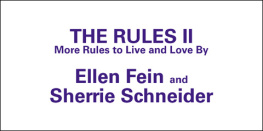
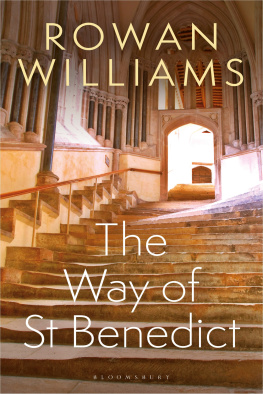
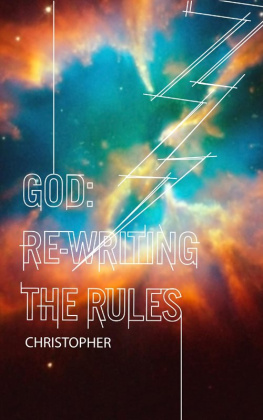
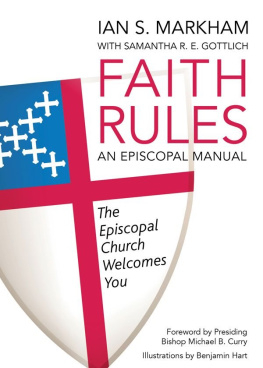
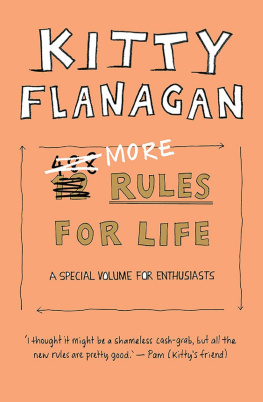
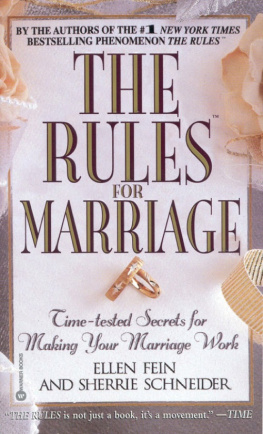
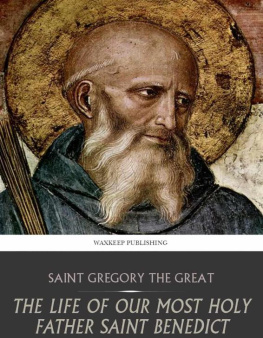

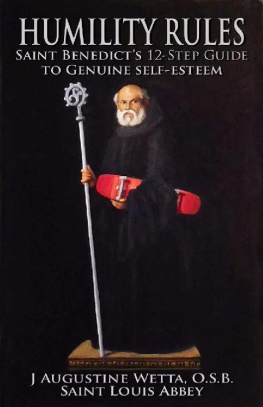

 Frontispiece Ivory carving depicting an archbishop of the time of St Chrodegang celebrating the liturgy.
Frontispiece Ivory carving depicting an archbishop of the time of St Chrodegang celebrating the liturgy.